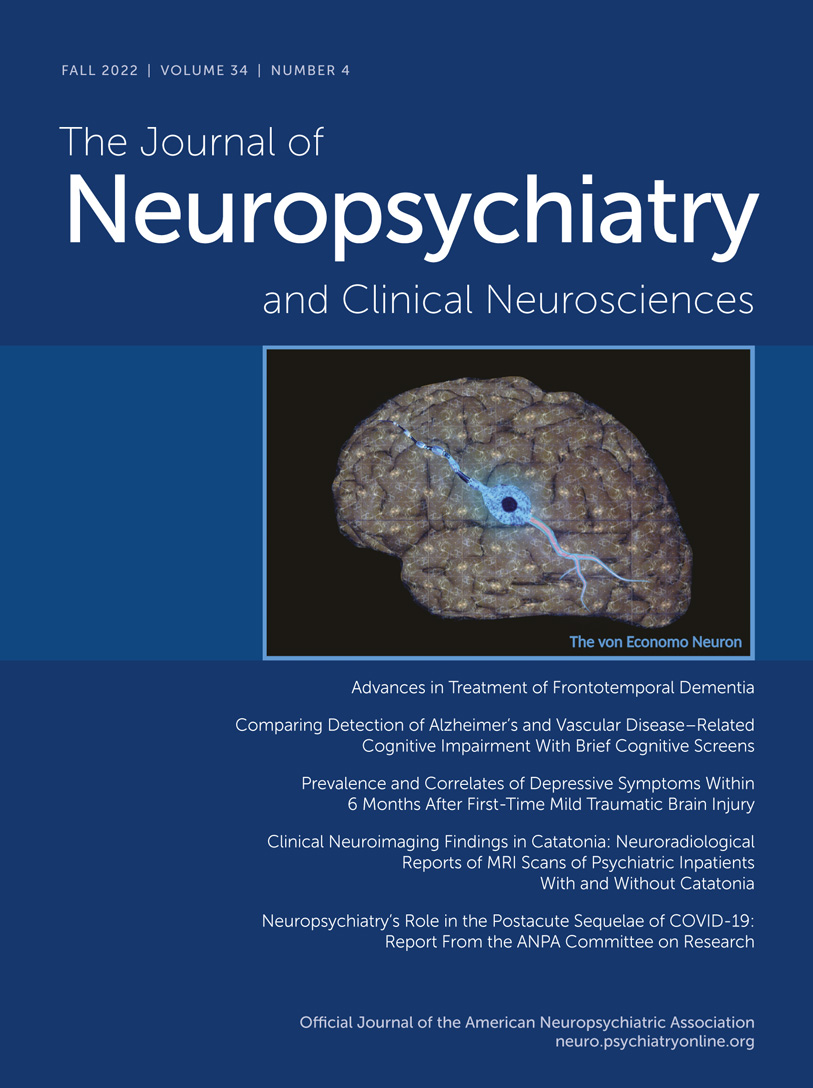Neuropsychiatry’s Role in the Postacute Sequelae of COVID-19: Report From the American Neuropsychiatric Association Committee on Research
Abstract
The postacute sequelae of COVID-19 infection (PASC), also known as post-COVID condition or “long COVID,” refers to symptoms that persist after the initial acute phase of the infection. PASC symptoms may occur in patients who had mild acute disease. On the basis of current data, commonly reported neurological and psychiatric symptoms in PASC include sleep problems, fatigue, cognitive impairment, headache, sensorimotor symptoms, dizziness, anxiety, irritability, and depression. Knowledge from neuropsychiatric sequelae of other viral infections, such as other coronaviruses, provides us with information about the heterogeneity and similarities of neuropsychiatric clinical presentations that may follow viral illnesses over a long period. Several, possibly overlapping, pathophysiological mechanisms have been proposed to explain neuropsychiatric PASC: direct effects of the virus and immunological, vascular, functional, iatrogenic, and other etiologies. The authors present practice considerations for clinicians confronted with the challenge of evaluating and treating patients who have neuropsychiatric PASC. A comprehensive neuropsychiatric approach reviews historical factors, provides an objective assessment of symptoms, carefully considers all potential etiologies, and offers a therapeutic approach aimed at restoring premorbid functioning. Given the currently limited therapeutic options for neuropsychiatric PASC, unless an alternative etiology is identified, treatment should be symptom based and guided by evidence as it emerges.



